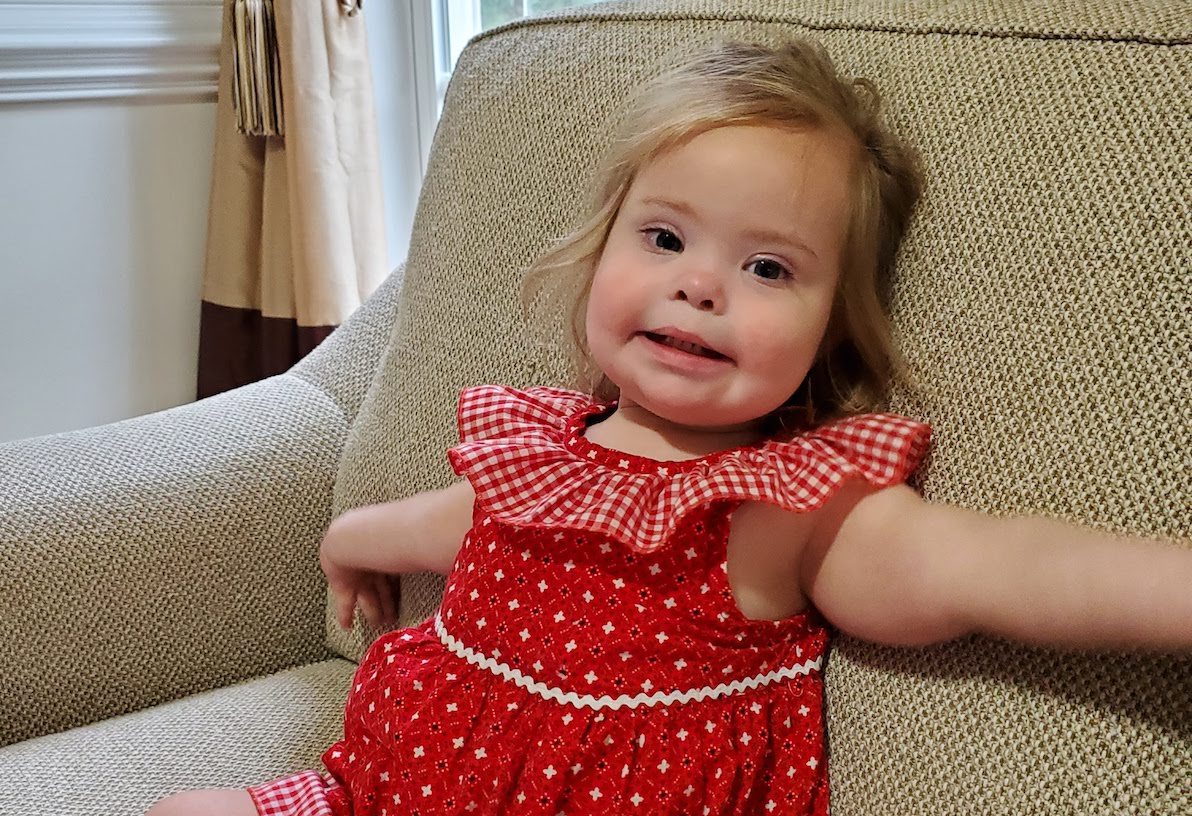I’ve never really been one for learning a new language. In fact, when everyone else was learning Spanish or French, my middle school self decided to pick Latin – a dead language. I ended up taking many years of Latin and I really don’t have much to show for it. In fact, I got a 1 on the Latin AP test and my high school self would be horrified that I would share this failure so publicly.
However, when we speak the same language it is a beautiful thing that helps us communicate with one another.
In this season of social distancing and pandemic, so much has turned online. And I’m thankful for the platforms we do have to send videos and messages to loved ones. But I didn’t anticipate the array of emotions I would experience watching videos of children younger or the same age as Harper saying “Happy Birthday” or “I love you” or really any word(s) at all. Most of my initial reactions were of delight. How can you not smile when hearing the sounds of newly learned words? But then that sinking feeling would hit when I realize that Harper is not there yet. I’m still waiting for Harper to say “Mama” and she is 2 years old. While she can babble the sound of mama, there isn’t intention or direction behind it yet. Sadness, disappointment and impatience start to creep in.
But communication is so much more than words. In fact, studies show that between 70-90% of communication is nonverbal. A fact that I also learned studying communications for my undergrad and graduate degrees – I guess my degrees aren’t a waste!
And let me tell you Harper can communicate!
She can let us know when she is happy, sad, hurt, hungry, tired and so much more. Using baby signs for words like “eat” and “all done” has become really popular in recent years for all babies to learn, not just babies that have hearing loss, Down syndrome or other developmental delays. It’s a great way to bridge the gap before verbalizing. Recently though I realized we needed more than just the traditional set of baby signs because our gap to verbalization is longer than a typical child. We could tell Harper was understanding more and wanting to communicate more things.
We really want to help Harper communicate. A big goal is to get her talking, but giving her tools to be able to express more clearly her needs and wants is important too. So, we have turned to sign language to bridge this gap. Harper also meets with a speech therapist weekly to work on her communication skills.
In a few weeks she has picked up a number of new signs such as help, please, music and open. It has been so helpful. She yells so much less because she’s been given tools to communicate better.
I’m so proud of all she is learning and it is super cute to see her use sign language. For example, “open” is just moving your hands apart, but she dramatically throws her arms open for this one.
Of course, I want Harper to talk, but I recognize that it is going to take a little longer. So for now we will enjoy this new form of communication – sign language.
I didn’t think I would be learning another language in my 30s. But that’s Harper and motherhood, just continually adding to my list of unexpected experiences.
It can be hard to wait and walk a different path, but it is also beautiful and creative. I long for the day that Harper greets me with saying “Mama”. I believe it is coming and I know that there will be abundant joy and celebration for it. But for now I will enjoy that she throws her whole body into a hug, that she cheers for me after every song I sing to her and that she gently holds my hand as we snuggle while watching TV. Each of these clearly communicates “Mama” and that I can rejoice in!


Yeah Harper, Yeah Laurie and Luke for being able to communicate!
BUT, Latin is not dead, it lives on and is the foundation for western civilization and many modern languages. Latin lives on! One day, English will just be a footnote in history, While Latin will still be studied and remembered as the language of science, philosophy, theology, literature and the western human experience.